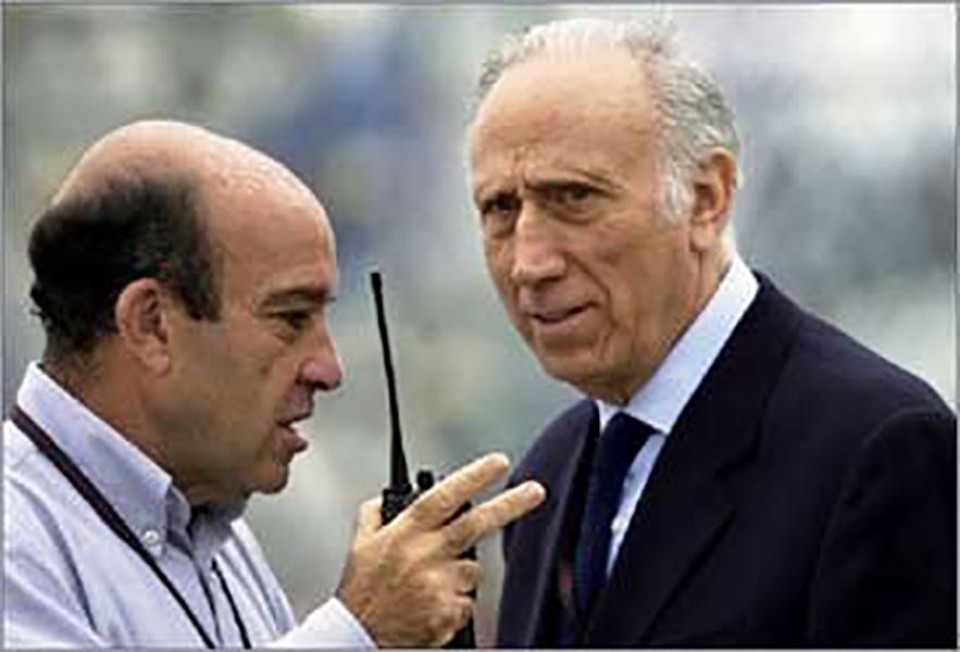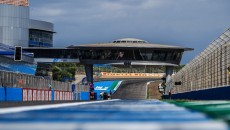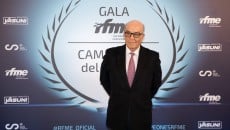For a long time, Carmelo Ezpeleta, CEO of Dorna and Francesco Zerbi, president of the International Motorcycle Federation (FIM) for 16 years, from 1995 to 2006, re-elected three times, were partners.
A collaboration that had placed the former Spanish rider and manager side by side with the Calabrian marquis in a singular vision of intent and methodology.
Zerbi in fact defined himself as an enlightened monarch, meaning that in a republican organization such as a Federation he listened to everyone, but then decided and did things his own way.
That’s exactly the same behaviour of Ezpeleta who has set up an apparently democratic structure, with various partners like IRTA - what was once the teams’ association and is now the armed wing of Dorna, paid for by Dorna - and the MSMA, the manufacturers’ association, not to mention the FIM itself which, as far as the top championships are concerned, is reduced to putting its signature on paper.
Carmelo's latest utterance that you can read here confirms what has been written.
Mind you, the enlightened monarchy of Zerbi (and Ezpeleta) might work but it has a problem: it does not favour the growth and autonomy of the people who live in the shadow of the monarch.
It is no minor problem if instead of an army you work in a company, but there is also a second problem: when (after listening) the Conducator makes his decision, any agreement, written or oral, previously made by the parties, becomes invalid.
This raises a question about the effectiveness of contracts. A problem already brought to our attention by some MotoGP managers, like Carlo Pernat.
After all, it is plain for everyone to see that the management of MotoGP is becoming increasingly political and personalised. A certainly negative side, which however has an explanation in a general management that sees too few managers capable of commanding the various centres of power.
It is not good to say, but cases such as the withdrawal of Suzuki, or the apparent indifference in the face of the departure of highly experienced characters such as Franco Uncini, Davide Brivio or Livio Suppo – irrespective of their personal decisions – demonstrates the scarce maturity of MotoGP from a managerial point of view.
Dorna has realised this and from the end of last year Carmelo Ezpeleta himself began to modify the situation. There was not only the arrival of his son Carlos - there is also a need for young managers - but also Dan Rossomondo, whose contribution we won't see very soon.
In short, for a while longer we will need an enlightened monarch. Obviously, we don’t like all Ezpeleta's decisions, especially the upheaval of the format and the introduction of the Sprint Race, the 2023 calendar is crazy, the decision to race in India on a circuit that hasn't yet been approved is highly questionable, but Carmelo is also a man of common sense. He understood that he can no longer (or doesn't want to) do everything by himself anymore. Probably, like everyone else, he suffered the two terrible years of Covid, in which the stress of keeping everything on track was crazy. And passing the buck to someone else is always difficult.
Now we can only hope that the manufacturers find an acceptable compromise to improve the show without forgetting that motorcycle racing is a sport. We need more balance between the powers. And accept the changes of the different historical periods.
In 1955 only European manufacturers raced in the world championship: Gilera, MV Agusta, Moto Guzzi, Norton, BMW, Matchless. And it was like this until 1970 with the timid arrival of the Japanese. Now there is only to be hoped that another ice age does not arrive, this time in the East. Without losing sight of the fact that whatever cools enthusiasm in Tokyo might also lead to a rethink of the commitment by the European manufacturers.










